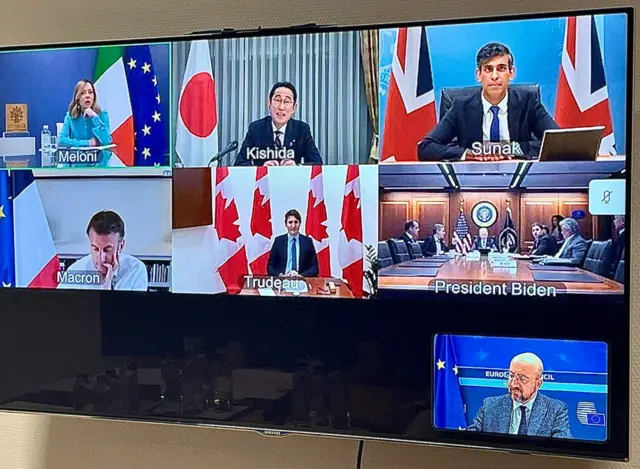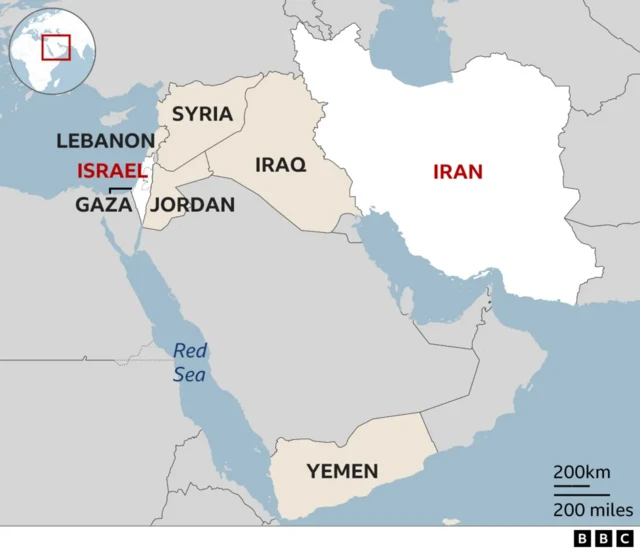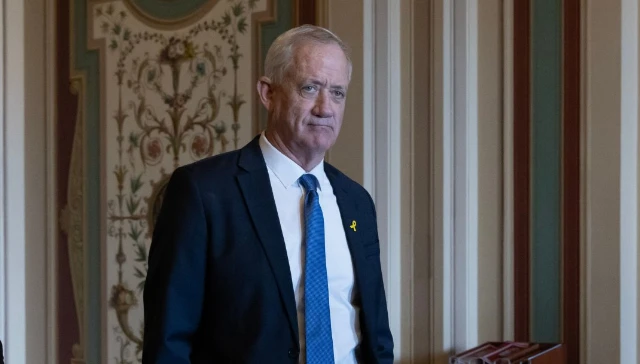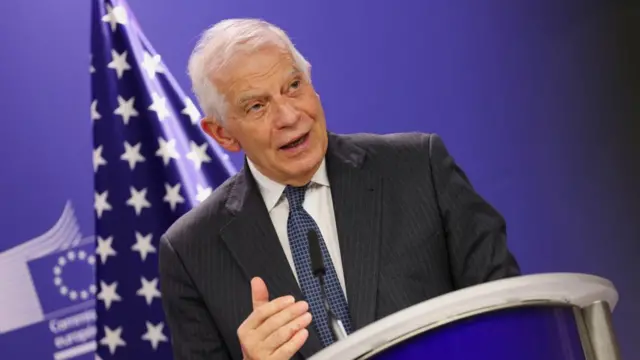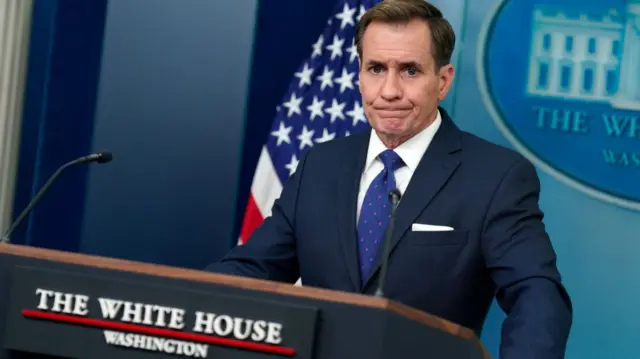Provocative acts could spike tensions - Russiapublished at 18:01 BST 14 April 2024
According to the Russian Foreign Ministry, Sergei Lavrov has just held a conversation with his Iranian counterpart Hossein Amir-Abdollahian.
"It was noted that a further escalation of tensions in the region and new, dangerous provocative actions could lead to a boost in tensions in the Middle East," the ministry said.
"Preventing such scenarios and removing their primary reasons must be a priority matter for the UN Security Council."
The UNSC is due to meet later today after Israel requested it condemn Iran's attack on Israel and designate the Iranian Revolutionary Guard Corps a terrorist organisation.
